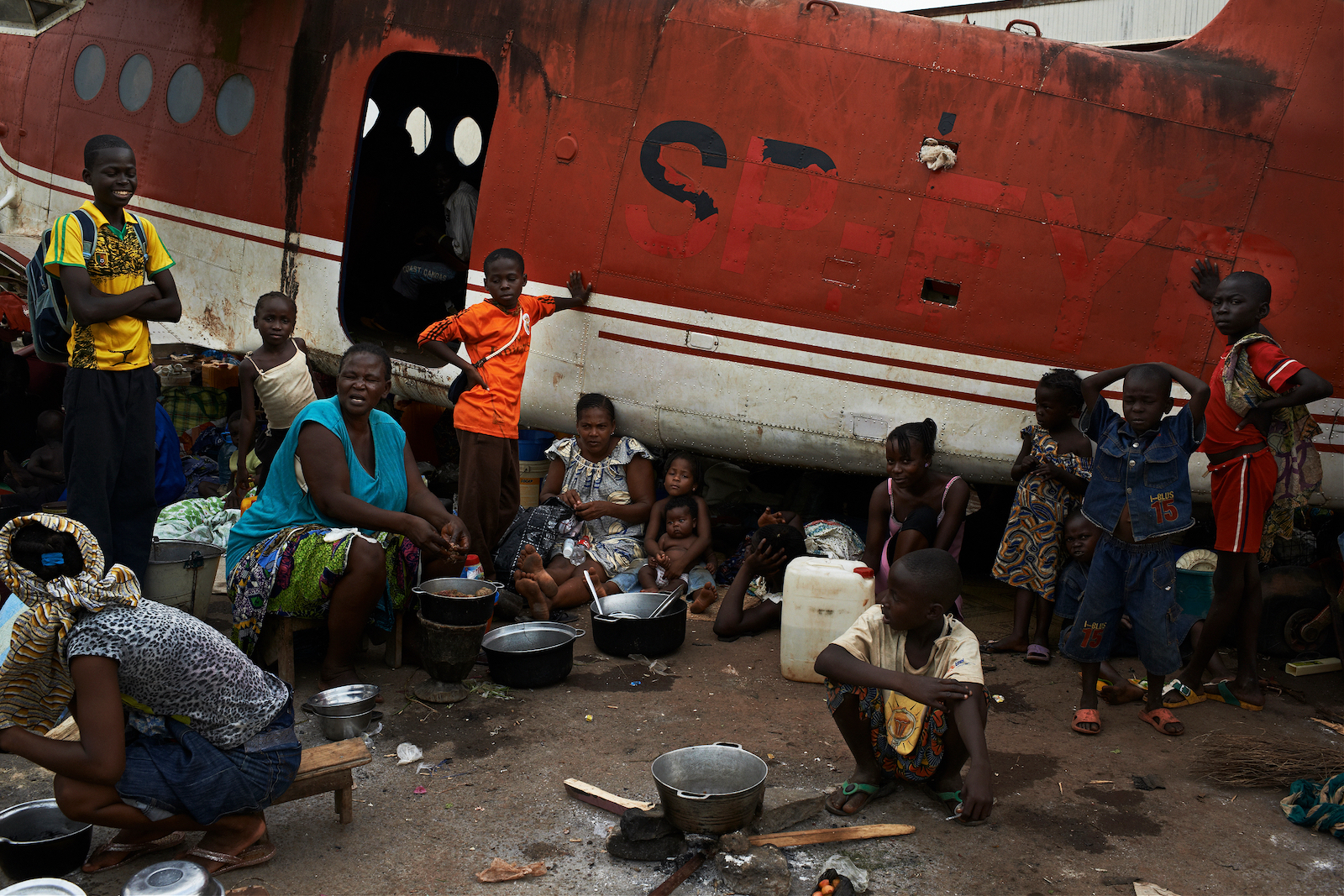
Understanding America’s Complicated Relationship with Africa
In a world where the dynamics of international relations shift with the winds of global events, the United States finds itself at a crossroads with Africa. This moment invites Americans, alongside the people and leaders of Africa, to confront the realities of their interconnected fates with candor and resolve.
In an analysis I penned for The National Interest back in 2016, I challenged the prevailing “Africa Rising” narrative for its oversimplification. At the time, signs of trouble were already on the horizon—economic stagnation, electoral unrest, and the proliferation of extremist factions signaled rough terrain ahead.
Regrettably, the intervening years have not brought the progress for which many hoped. What were once considered minor hurdles have transformed into gaping fissures that threaten the stability of the continent. During his Africa tour in September 2023, U.S. Secretary of Defense Lloyd Austin candidly acknowledged these challenges in Angola, highlighting a litany of threats that African nations grapple with including pandemics, food insecurity, climate change, terrorism, resource exploitation, and a resurgence of authoritarian rule.
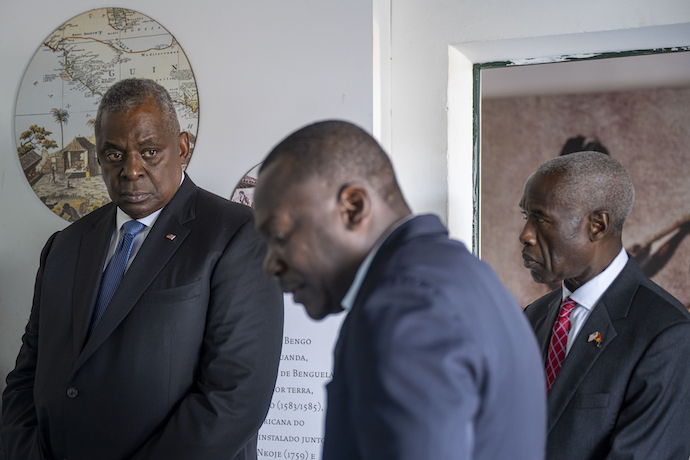
The democratic institutions in Africa, once symbols of hope and progress, are now beleaguered by crises and conflict.
The past year has been particularly turbulent, with a wave of undemocratic coups sweeping across the continent. Nations such as Niger, Gabon, The Gambia, Guinea-Bissau, and São Tomé and Príncipe found themselves in the throes of political instability, a troubling continuation of the unrest seen in Burkina Faso, Mali, and Sudan.
The alarm bells rang louder for the United States on February 3rd, when Senegal, long considered a bastion of democracy in West Africa, began showing distressing signs of democratic backsliding. President Macky Sall’s decision to delay elections, sparking widespread protests and violence and leading to an Internet blackout, has cast a shadow over the nation’s democratic credentials. The uncertainty surrounding the timing of future elections adds to the growing concern for the region’s stability.
Further afield, the Democratic Republic of the Congo (DRC) is embroiled in renewed conflict, with the resurgence of fighting between Congolese forces and M23 rebels, allegedly backed by Rwanda, underscoring the complexities of regional politics. The conflict has displaced nearly seven million people, highlighting the profound human cost of these crises.
The United States has not been a passive observer in these developments. Efforts to mitigate the violence in the DRC and support the Congolese people have been met with mixed reactions. Recent protests targeting Western embassies, including the U.S. Embassy in Kinshasa, reflect a deep-seated skepticism of Western motives, particularly regarding the perceived support for M23 through alliances with Rwanda.
Amidst these challenges, the U.S. and the DRC are also united against the Allied Democratic Forces (ADF), an armed group with ties to the Islamic State. The collaboration between Washington and DRC President Felix Tshisekedi, which brought U.S. Special Forces to assist in combating the ADF, underscores the multifaceted nature of U.S.-Africa relations—a relationship defined by partnership in the face of adversity but complicated by perceptions and historical legacies.
U.S. military aid to the Democratic Republic of Congo is but a fraction of its broader commitment to Africa. The financial assistance narrative is complex: the DRC alone benefited from nearly $486 million in U.S. humanitarian aid in 2023. Kinshasa’s coffers have swelled with over $1.7 billion in health assistance spanning two decades, and in the fiscal year 2022, USAID’s largesse extended beyond $6 billion to African populations in need.
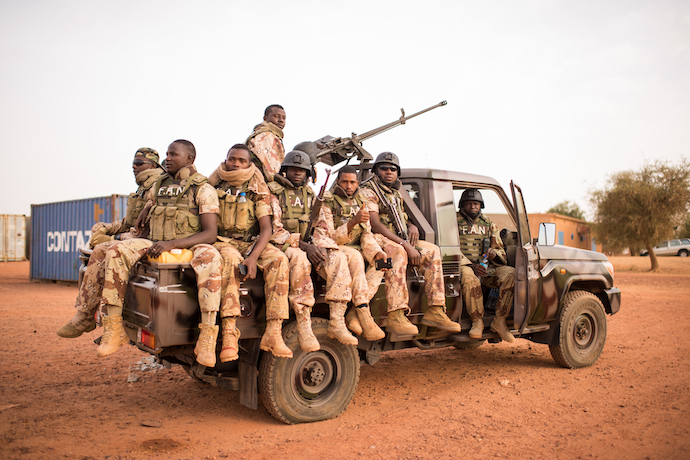
While the moral imperative for America to assist is acknowledged, the sheer scale of the aid—totaling billions—raises critical questions. The irony is stark when juxtaposed against domestic challenges. For instance, Washington’s investment in the global HIV/AIDS initiative PEPFAR exceeds $100 billion, whereas stateside, a staggering number of Americans—more than 100 million—grapple with healthcare-related debt. This is set against a backdrop of some of the highest chronic disease rates globally.
The specter of corruption looms large over the deployment of American aid, compromising its integrity. The 2023 Corruption Perceptions Index paints a grim portrait of the continent, where stagnation and regression in anti-corruption efforts are the norms rather than the exceptions. 2023 alone bears witness to the plundering of $900,000 from an American aid organization’s Congolese programs—a testament to the pervasiveness of such malfeasance.
The interplay between copious U.S. aid and African corruption raises concerns beyond mere financial loss. It poses the risk of exacerbating instability in an already volatile governance landscape. An insightful piece in Foreign Affairs critiques the U.S. strategy of bolstering military forces in terror-afflicted regions. The article posits that while the intentions are noble, they may inadvertently contribute to a cycle of radicalization among both civilians and soldiers due to the underlying corrupt and ineffective governance. This is underscored by the alarming frequency of coups in Africa’s Sahel region since 2020, signaling a red alert that U.S. efforts to foster stability might be faltering.
America’s financial forays into Africa, totaling billions, seem to vanish into the ether, while China strides forward, launching lucrative joint ventures that boost its own corporations and lay the groundwork for African infrastructure. The latest Sino-DRC collaboration—La Sino-Congolaise des Mines—unveiled ambitious plans for $7 billion in infrastructure endeavors, with a keen focus on road construction.
In stark contrast to China’s aggressive push, the United States’ private sector engagement in Africa appears subdued. A mere sliver of U.S. global commerce, two-way trade with Africa amounted to $64.3 billion in 2021, a significant decline from 2008’s peak of $141.9 billion.
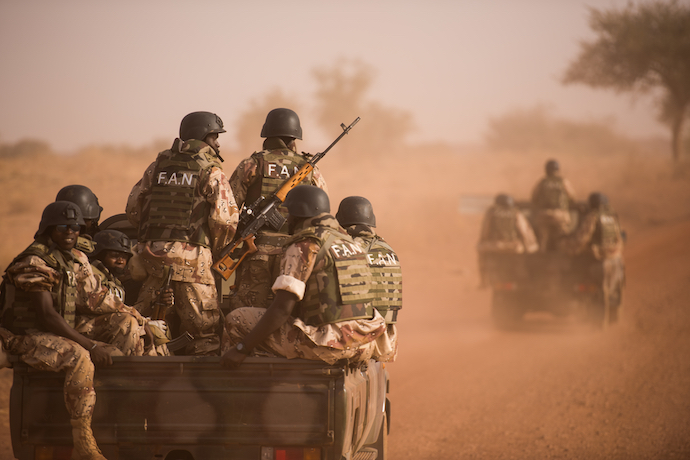
At the heart of U.S. policy and commercial relations with Africa is the African Growth and Opportunity Act (AGOA), a cornerstone since 2000, predicated on stringent criteria designed to spur market-oriented economies, uphold the rule of law, ensure political plurality, and safeguard due process. It also seeks to instigate policies that target poverty alleviation, corruption eradication, and the protection of human rights.
As AGOA approaches its expiration in September 2025, the United States faces a critical juncture: to uphold these exacting standards or to abandon them entirely. The imperative is clear—an AGOA with the fortitude to rival entities like Huawei, which are swiftly expanding their footprint across the continent.
AGOA’s fate is mired in uncertainty, particularly regarding the eligibility of South Africa, a regional heavyweight. The Heritage Foundation’s Index of Economic Freedom illustrates a disheartening decline in South Africa’s economic liberties, from a score of 63 in 2018 to 55.7 in 2023.
Africa is acutely aware of America’s hunger for its strategic resources and, potentially, for its manufactured goods—should local beneficiation become a reality. Critical minerals such as cobalt, chromium, and tantalum are abundant, particularly in the central and southern regions of the continent. The Biden administration has made commendable strides in establishing robust partnerships with African nations, fostering business-centric collaborations aimed at meeting mutual goals. A shining example of such cooperation is the collaboration with Zambia and the DRC to create a vertically integrated supply chain for electric vehicle batteries.
With the African population projected to surge to 2.4 billion by 2050, America not only aims to be a consumer but also to serve as a key supplier to this burgeoning market. The U.S. defense industry, for instance, is poised to expand its footprint, exemplified by the $590 million in active government-to-government deals with Nigeria, including the provision of 12 A-29 Super Tucano aircraft to bolster Nigerian military capabilities.
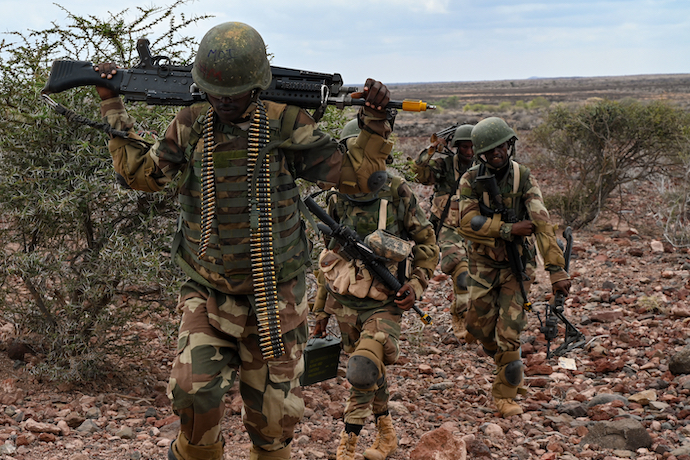
Yet, if the U.S. fails to capitalize on these opportunities, other nations are ready to step into the breach. Iran’s rapid expansion of UAV sales and transfers to actors such as Ethiopia and the Polisario Front in Western Sahara underscores the competition’s intensity.
Moreover, Africa’s need for investment and technology transfer is acute, to not only market its products globally but also to propel its youth into a new developmental epoch. Washington has the capacity to redirect funds on a scale comparable to the PEPFAR initiative toward infrastructural development in Africa, thereby igniting a leapfrog into modernity. The vast reserves of private American capital await, contingent on investor confidence in navigating the continent’s risk landscape.
A beacon of this U.S.-Africa engagement is the Prosper Africa initiative, a brainchild of the Trump administration, now a strategic node in national security policy. The San Francisco Employees’ Retirement System’s recent $100 million commitment to energy projects in nations like Côte d’Ivoire is a testament to the initiative’s viability. Such innovative financing mechanisms could serve as a blueprint for addressing Africa’s dire infrastructure needs.
The interplay of military engagement and national security is a delicate dance on the African stage, where the potential for missteps exists alongside the need for protection and stability. The United States, in its bid to safeguard its interests and provide basic security, must navigate this landscape with both caution and decisiveness.
The continuity of American military presence in Africa, despite the persistence of coups and conflicts, is not a matter of choice but of necessity. The Pentagon, attuned to the nuances of geopolitical dynamics, must ensure an enduring American footprint across strategic African locales. Key maritime routes and military outposts, including the drone base in Niger and Camp Lemonnier in Djibouti, are more than mere points on a map; they are bastions of defense, enabling swift U.S. responses to emerging threats and safeguarding nationals in crises. Yet, this presence need not be marked by grandiosity; the agility and precision of U.S. Army Special Forces and U.S. Navy SEALs speak to a leaner, more efficient force projection.
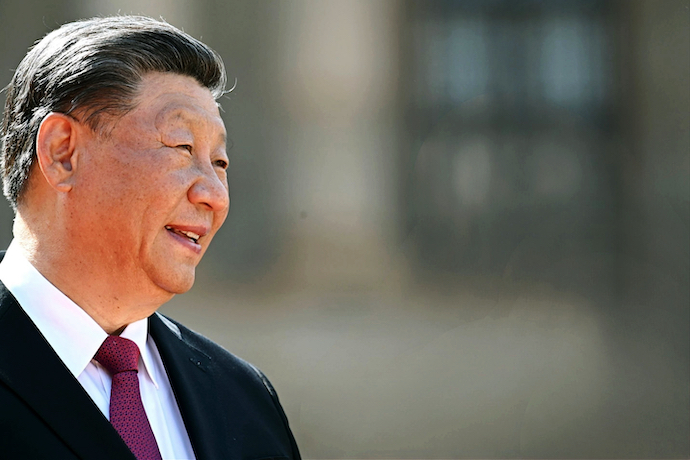
As global conflicts proliferate, forging partnerships with African nations becomes paramount to addressing future security challenges and laying the groundwork for economic prosperity.
Moreover, the United States must remain vigilant against the encroachment of adversaries, notably China, which seeks to establish military footholds in regions critical to U.S. national security. Revelations of China’s potential military expansion in Gabon and Equatorial Guinea warrant a proactive and strategic response, balancing the scales of power to maintain regional stability.
In the diplomatic arena, robust engagement is imperative, particularly as competitors carve out their spheres of influence. While high-level summits and dialogues in Washington hold value, the symbolic power of a U.S. presidential visit to African soil cannot be overstated—yet this gesture has been notably absent in recent administrations.
Nonetheless, the U.S. commitment to Africa continues through various official visits and engagements, as evidenced by U.S. Treasury Secretary Janet Yellen’s trip to Dakar and the collaborative efforts at the African Air Chiefs Symposium. The travels of Vice President Kamala Harris to Ghana, Tanzania, and Zambia in March 2023 further underscore this sustained interaction.
The United States stands at a pivotal juncture in its relations with Africa. The historical approach to aid, characterized by generosity but marred by a lack of stringent oversight, beckons for a reformation. America’s role is akin to that of a venture capitalist in a nascent market: it can supply the capital but must predicate its investment on the assurance of sound governance and the promise of substantial progress.
Africa’s youth are the architects of tomorrow, bearing a vision for their continent that transcends the prescriptive solutions from across the oceans. They yearn for legitimate, inspirational leaders, not the shadow of corruption, coupled with robust domestic policies that can support a sustainable future.
This moment in time presents a stark contrast: on one side is the infectious optimism of a digitally native generation; on the other, the relentless march of time that waits for no one. Africa is perched on a precipice where the potential for a thriving future is palpable, yet so is the danger of that potential remaining dormant. Without tangible economic growth, the continent’s youth face the peril of being ensnared in the machinations of illicit networks or the allure of radical ideologies as a means of survival.
Concurrently, there is an exodus of talent that leaves African shores for perceived better opportunities abroad. The last ten years have seen a steady efflux of South African professionals—doctors, economists, engineers, and academics—relocating to distant lands with no intention of returning, a narrative I have personally observed. This brain drain poses a significant threat to Africa’s aspirations for self-reliance and prosperity.
However, it is not all a tale of caution. The good news resonates with the vibrancy of African innovation and adaptability, especially in technology. The continent’s youth are poised to become a formidable force in the global market as both consumers and creators. Their collective fatigue with the status quo of unrest could very well be the catalyst for a peaceful and prosperous Africa.
Yet, this optimism is checked by the sobering reality of time’s relentless progression. The upcoming years are critical; they will either shape a generation of dynamic African professionals or witness a demographic succumb to the shadows of criminality and extremism due to stagnation in development. The choice Africa faces is stark: to forge a path towards prosperity or risk losing its most valuable asset—its people—to the winds of global opportunity.
